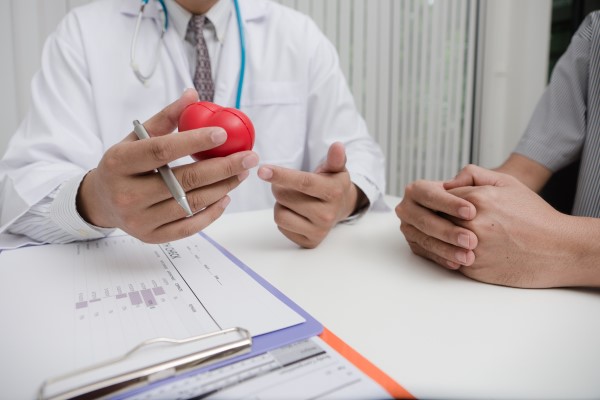3 Heart Disease Treatment Options from a Cardiologist

Looking into your heart disease treatment options? According to the Centers for Disease Control and Prevention, heart disease refers to several types of heart conditions. When it comes to treatment, it depends on the type of heart condition one has.
When to see a cardiologist
Wondering when heart disease treatment is necessary? A cardiologist is a health care professional who treats patients who have been diagnosed with a heart condition or heart disease. Also known as heart doctors, cardiologists play a very important role when it comes to the management of heart problems. While every patient is different, it may be time to see a cardiologist when someone is experiencing heart pain, diagnosed with high blood pressure, living with high cholesterol, is diabetic, and/or has a family history of heart problems.
3 Treatment options for heart disease
Below is a list of some of the more common treatment options used by cardiologists to treat heart disease in patients.
1. Coronary bypass surgery
Coronary bypass surgery is the most common type of open-heart surgery used to treat heart disease. The surgical process works by creating a new way for the patient's blood and oxygen to reach their heart. The cardiologist will use the patient’s own blood vessels in order to create the bypass, which is necessary when there are blockages in one or more of their arteries that supply blood to their heart. The surgery is performed with the goal of improving blood flow to the patient's heart and is commonly used to treat patients who have severe coronary heart disease.
2. Valve repair, replacement
Treating heart disease may require one to undergo a procedure in order to repair one of their heart valves. Heart valve repair is preferred over heart valve replacement, as it is easier to repair a heart valve when it has become damaged than to replace it altogether. Heart valve repair requires a cardiologist to perform a procedure called a balloon valvuloplasty, which is used to relieve any tightness in a heart valve. A valve replacement procedure is necessary when a heart valve is not able to be repaired. The artificial heart valve used to replace the damaged valve is either artificial, made from human-donor or animal tissue.
3. Prescription medications
There are many types and combinations of drugs used to treat coronary heart disease. Some of these medications help to make heart patients' blood thinner, as this helps to prevent harmful clots from forming in the blood vessels. Other medications may be used to expand blood vessels, decrease heart rate, lower cholesterol levels, repair irregular heartbeats, and help the body get rid of any buildup of excess fluids that can make the heart work harder.
The bottom line
Is heart disease treatment in your near future? Now that the above information has been read, it is understood that there are many different types of heart disease treatments a cardiologist can offer. In order for someone to understand what type of treatment they need, they will need to make a consultation appointment with a cardiologist in order to learn more about their particular situation.
Get more information here: https://boyntonbeach.floridapremiercardio.com or call Florida Premier Cardiology at (561) 229-1411
Check out what others are saying about our services on Yelp: Read our Yelp reviews.
Recent Posts
Heart disease treatment encompasses a range of interventions, from lifestyle changes and medications to surgical interventions. Individuals can manage their condition and improve their quality of life by working with a cardiologist. Successful heart disease treatment starts with the patient having the information they need to make informed decisions about their health.Also known as cardiovascular…
A heart specialist is a doctor specializing in diagnosing and treating cardiovascular conditions. Patients may be referred to one of these doctors for several reasons, from diagnosing a heart health issue to getting cleared for surgery. However, seeing a heart specialist is even more crucial for those either experiencing the signs of heart disease or…
Cardiologists perform angioplasty to open blocked arteries, specifically those caused by coronary disease. This minimally invasive alternative to open heart surgery can restore proper blood flow to the heart and often reverse the fast track to a heart attack. However, learning when one is necessary is crucial for treatment success.Coronary artery disease (CAD) is a…
The heart's valves must remain healthy and upright to promote an overall healthy heart and cardiovascular system. However, sometimes, they can weaken. Fortunately, various valvular disease treatments are available to address damage. Whether valves begin to narrow or leak, timely treatment is necessary.There are two main types of heart valve disease: regurgitation and stenosis. The…


